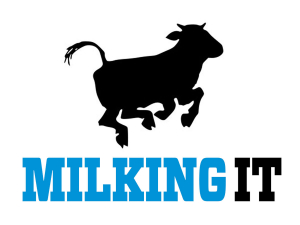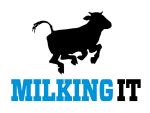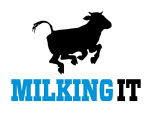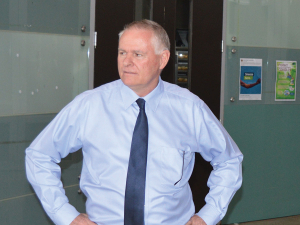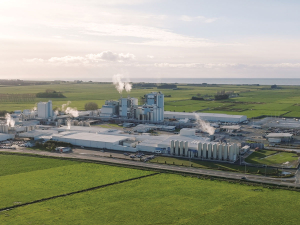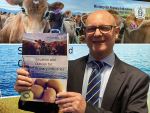There has been a drive to ensure that as much of the UK dairy herd as possible grazes outdoors in summer. But the industry is slowly waking up to the fact that being out on grass is not always a good thing, says Tom Chamberlain, a vet and farming consultant.
Chamberlain is working with farmers who are trialling the practice of bringing their cows indoors during the daytime. He says that cows start to suffer once the temperature goes above 20˚C.
"A cow in 25C hear feels like we would in 40˚C," says Ed Bailey at George Farm Vets in Wiltshire. "They are very sensitive to heat because of the fermentation tank inside their bodies - it constantly produces a lot of heat."
The heatwave also forced French farmers to install huge fans to keep their cows cool as temperatures touched 40 degrees.





